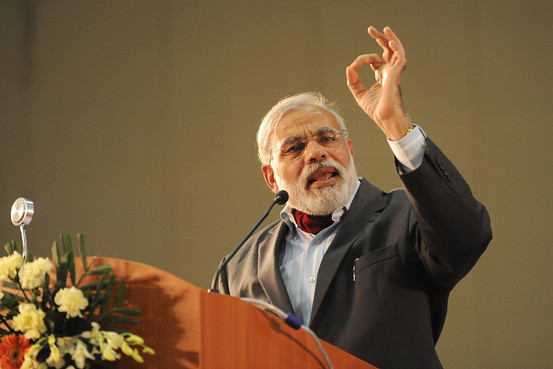The 2014 Election in India has come as a game changer. Much of the old political establishment is wiped clean, coalition politics has taken a severe beating, and the people of India have voted for growth and change. There is a definite mood of hope in India with the historic, decisive win of the Bharatiya Janta Party and its allies. As the dust of the long drawn out campaign settles and a new government takes shape, the industry is sensing that a stable government with pragmatic policies would be the best that could happen to a country in drift for long.
The new, tech-savvy Prime Minister, Mr. Narendra Modi being a firm believer of using modern technology to revive growth and India being a leader in its own right in the outsourcing industry, watchers are already gauging how the election results are going to impact the sector.
Kaushik Basu, Chief Economist with the World Bank in a recent article pointed out, “Modern technology has enabled workers in emerging economies to join a global labor market… Thanks to technological changes and relentless globalization, the character of entire economies has changed dramatically over the last 50 years.”
India has been one of the beneficiaries of this technological change. Given the high priority that the new government is likely to give to growth and employment, the Indian outsourcing industry is bound to get great attention for it remains one of the largest private sector employers in the country.
As ‘character of entire economies’ is dramatically changing globally because of a more widespread labor market that encompasses the outsourcing industry, many of the developed economies such as the USA are already tightening controls to save home jobs from being outsourced.
The disjointed UPA–II coalition government headed by former Prime Minister Manmohan Singh lacked the inherent strength to stand up to stronger nations who have started imposing restrictions on outsourcing work.
The strong India election verdict has sent out ripples that cannot be ignored easily.
A protectionist approach by the USA and other countries toward outsourcing is bound to be resisted by India for one of the biggest supports of the Modi 2014 mandate have been the youth who are seeking better job opportunities. Restrictions imposed on outsourcing jobs will impact trade in other areas that India has the negotiating rights to revoke given its huge population base which holds prospects of a growing market for any trading nation.
Other than securing and ensuring flow of more outsourced work, the decisive verdict is expected to increase more foreign direct investment into the sector as more international players would be attracted to set up shop in the country. International corporations may also shed off some of their hesitations and reluctance to make large scale investments in India. The advantages are obvious.
A stable government would ensure proper safeguards for the investments made and the job multiplier effect besides the foreign exchange earned would be a win-win situation for the new government and the investor in the outsourcing industry.
Another positive outcome of the election result for the outsourcing industry is likely to be policy changes. Being a foreign exchange earner, the industry justly is classified in the export sector that a government seeking to boost growth is bound to promote.
Where much of the outsourcing industry based in India is related to airline it solutions and BPO services, the competitive advantage lies in the huge difference in availability of skilled manpower at a salary heavily discounted in comparison to developed countries.
However, one of the major disadvantages the election result is bound to leave on the outsourcing sector is strengthening of the rupee vis-a-vis other currencies. Even prior to the election result as the stock markets sensed a change in the government, it rallied along, strengthening the rupee from Rs 64/65 to Rs 59.50 to Rs 58.49 against the USD.
With strengthening of the rupee and as advantages of foreign exchange earnings for companies drop, this would hit profitability, as well as passing on fringe benefits of a cheaper rupee such as offering wage hikes.
Where the election results have provided much needed stability that would enable the outsourcing industry to grow, a high trajectory economic growth of the country could erode the advantages of the differential labor market and a lower exchange rate value of the rupee that it currently provides.
However, well established ITO/BPO players have already gone through such cycles before and are well equipped to handle the challenges without it letting affect the delivery or value creation for the customer.
